منتجاتنا
الفحم الحيوي ( نبت )
يُعد الـ Biochar حلاً مستدامًا وفعالاً لتحسين التربة ، ويساهم بشكل كبير في الحفاظ على البيئة وتحقيق التنمية المستدامة.
- تحسين خصوبة التربة وزيادة إنتاج المحاصيل من خلال الاحتفاظ بالمغذيات والمياه.
- تقليل مياه الري بنسبة تصل ل 30% اعتمادا علي نوع المحصول.
- يزيد من إنتاجية المحاصيل ويقلل الحاجة إلى استخدام الأسمدة الكيميائية.
- يعزز نشاط الكائنات الدقيقة في التربة، مما يدعم نمو النباتات بشكل صحي.
- يعمل على تخزين ثاني أكسيد الكربون عن طريق حبس الكربون الجوي في التربة وتحويله لكربون أرضي لفترات طويلة.
- يُستخدم في مشاريع استصلاح الأراضي لإعادة تأهيل التربة المتدهورة أو الملوثة.
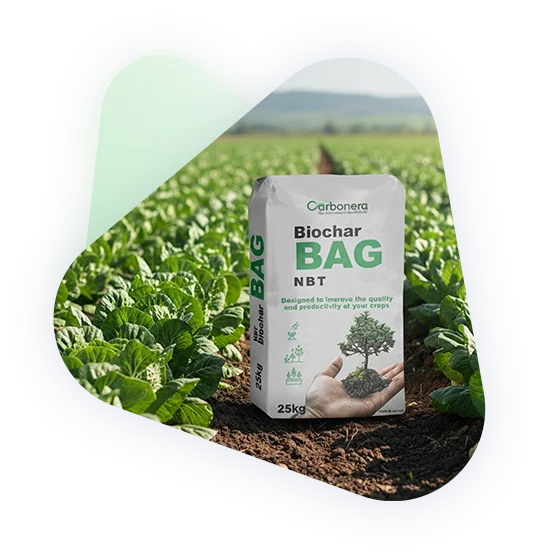
الكربون المنشط
كربون نشط عالي الجودة بأشكال مختلفة (مسحوق، حبيبات، أسطواني).
الكربون النشط ( C-WAJ )
- يستخدم في معالجة المياه - تنقية الهواء والغاز - استعادة الذهب - القطاع الطبي والصيدلاني - تخزين الطاقة.
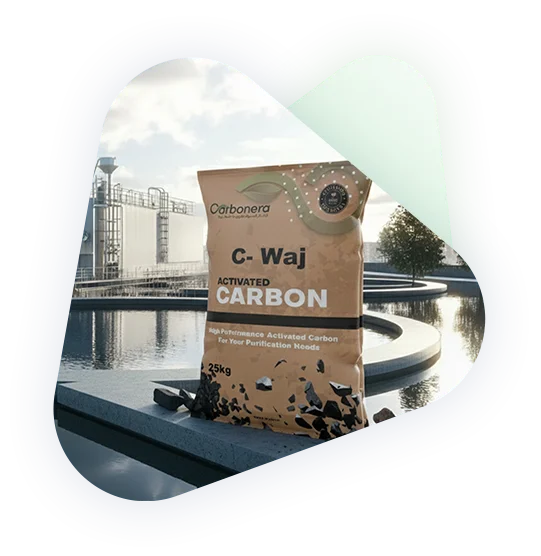
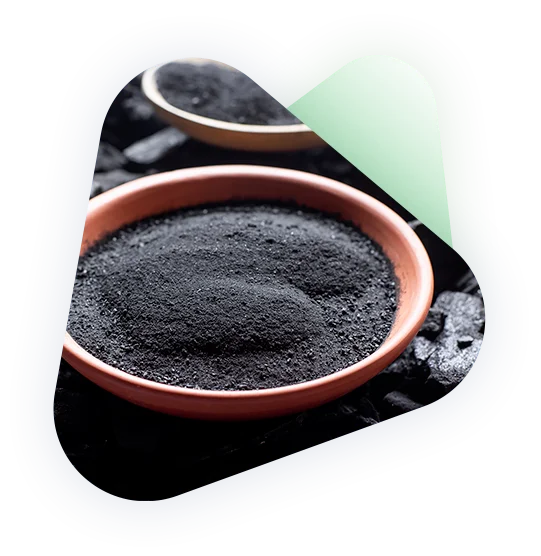
الكربون النشط المسحوق
- جزيئات دقيقة ذات مساحة سطحية عالية.
- مثالي للامتصاص السريع في التطبيقات السائلة.
الكربون النشط الحبيبي
- جزيئات أكبر من PAC، تتميز بقوة ميكانيكية عالية.
- تتميز برقم أيودي عالي Iodine number
- مناسب لأنظمة التدفق المستمر. الكيميائية.
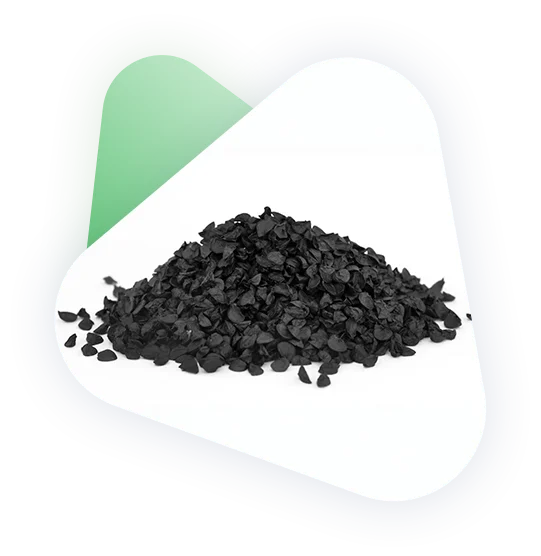
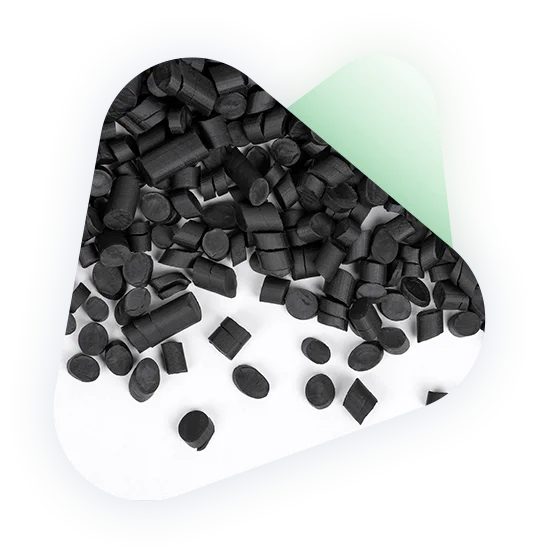
الكربون النشط المضغوط (الحبيبات/الأعمدة)
- شكل أسطواني بحجم موحد.
- يتميز بقوة ميكانيكية عالية وقلة تكوين الغبار.
- يُستخدم بشكل شائع في تنقية الغازات.
- تُستخدم في تطبيقات متخصصة مثل تنقية الهواء وفصل الغازات الصناعية.
منتجاتنا الاخرى
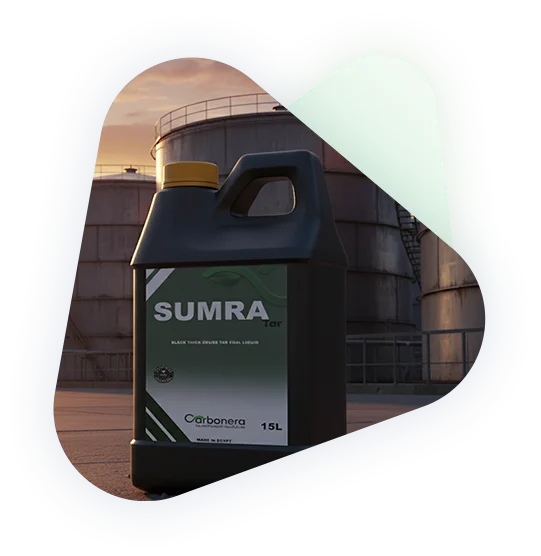
القطران السائل ( سمره )
- يُستخدم في تصنيع الدهانات، ومواد العزل، ومواد مقاومة التآكل.
خل الخشب ( نماء )
- بديل آمن وفعال للمبيدات الكيميائية، ويزيد من مقاومة النباتات للأمراض.

التطبيقات
1. معالجة المياه
- إزالة الملوثات العضوية، الكلور، ومركبات الطعم والرائحة.
- امتصاص المعادن الثقيلة والمبيدات في معالجة مياه الشرب ومياه الصرف.
2. تنقية الهواء والغازات
- إزالة المركبات العضوية المتطايرة (VOCs)، الروائح، والغازات السامة.
- يُستخدم في التحكم في الانبعاثات الصناعية وتحسين جودة الهواء الداخلي.
3. استعادة الذهب
- يُستخدم في صناعة التعدين لاستخلاص الذهب من المحاليل السيانيدية عبر الامتصاص.
4. القطاع الطبي والصيدلاني
- إزالة السموم في حالات التسمم أو الجرعات الزائدة (مثل أقراص الفحم النشط).
- يُضاف إلى أعلاف الحيوانات لتحسين الهضم وتقليل انبعاثات الميثان.
- يُستخدم في مستحضرات التجميل العلاجية وحمل الأدوية في أنظمة الإطلاق الدوائي المُتحكم فيه.
5. السلامة الشخصية والصناعية
- الترشيح في الأقنعة الواقية وأجهزة التنفس.
- يُستخدم في المنشآت النووية لاحتجاز اليود المشع والغازات الأخرى.
6. صناعة الأغذية والمشروبات
8. الصناعات الكيميائية
10. صناعة الإسمنت
7. تخزين الطاقة
9. صناعة الحديد والصلب
11. إعادة تأهيل البيئة


Consectetur Lobortis Maecenas Mi Lacus Cond Consequat.
Suspendisse leo sodales varius leo elementum vestibulum a elit at ultrices a mi a praesent enim libero ultrices a amet suscipit. A tempus iaculis habitasse suspendisse aenean parturient blandit a
rutrum leo elementum purus a a et id non feugiat donec.
هل لديك سؤال؟
للاسئلة والاستفسارات يمكنك التواصل معنا عبر البريد الالكتروني.
